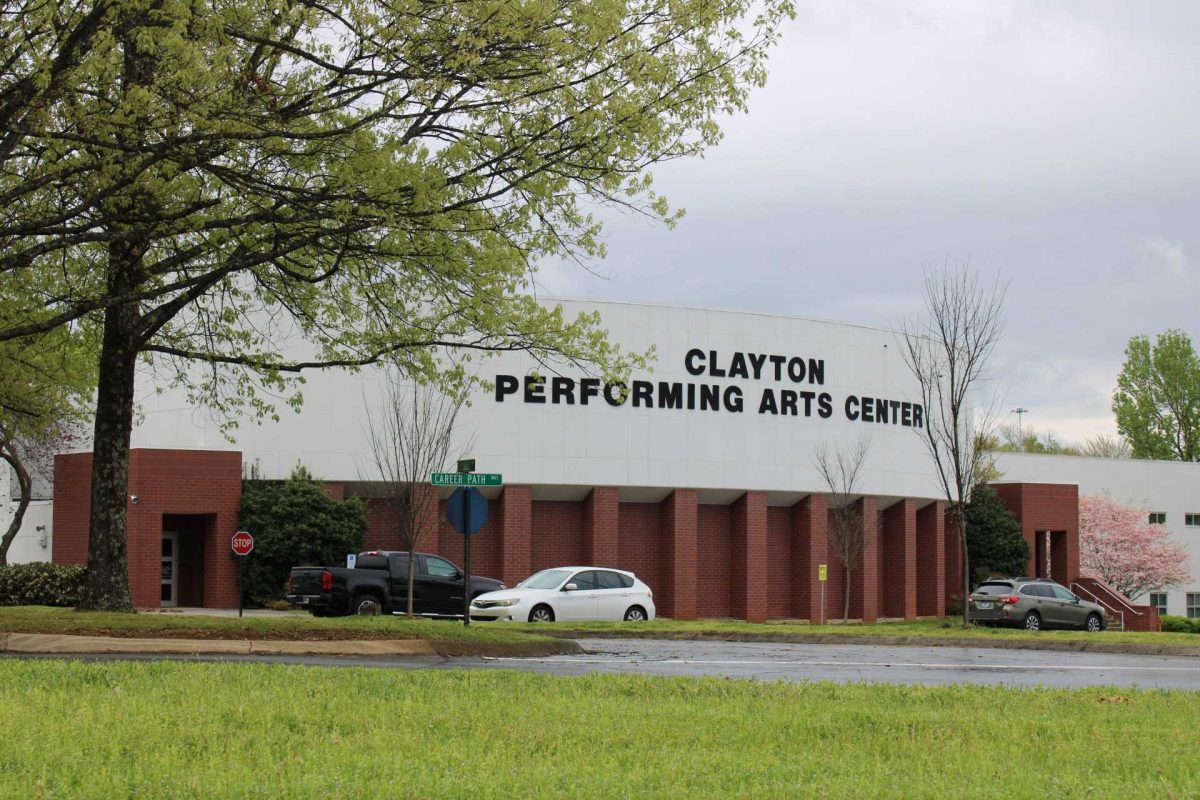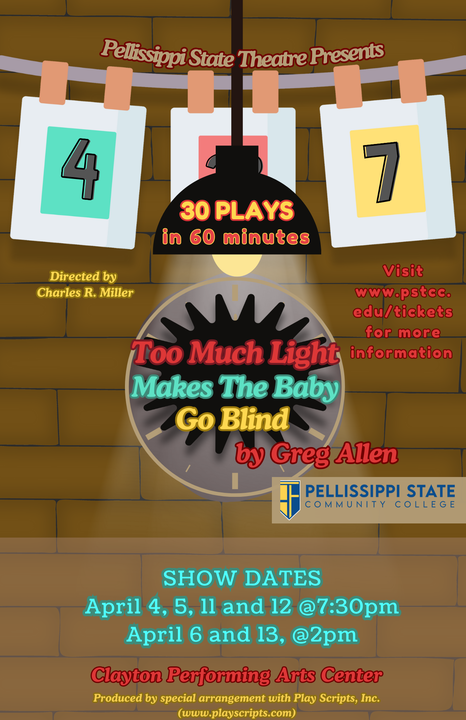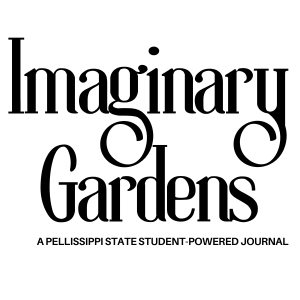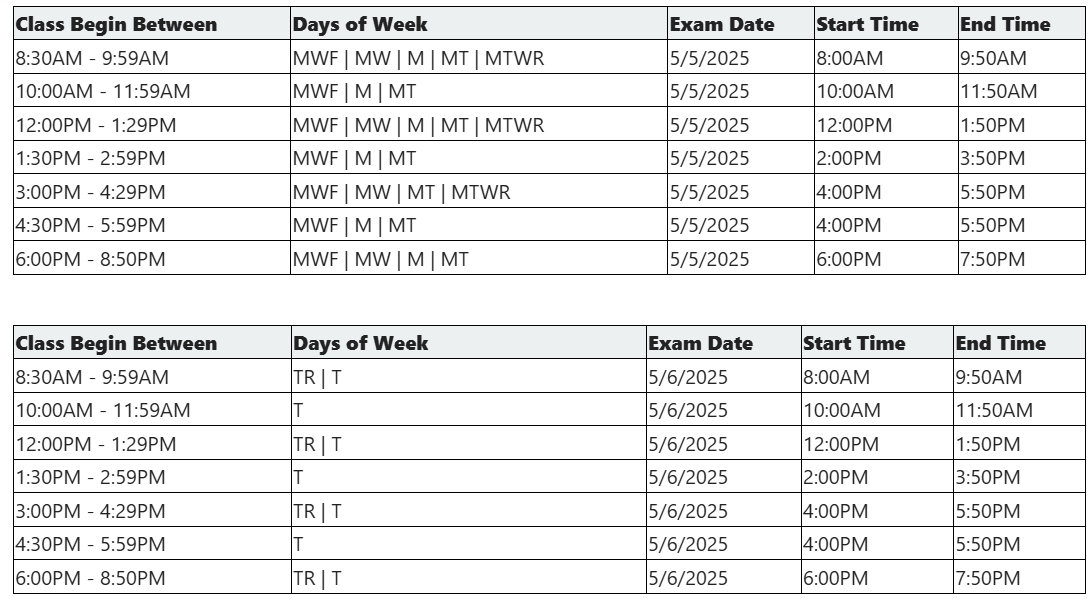By Draven Copeland, Editor-in-Chief

For the past two weeks, Pellissippi State Community College’s theatre department has thrilled audiences with its Fall 2025 production, Charles Miller’s rendition of the Neo-Futurist classic, Too Much Light Makes the Baby Go Blind. Knowing that the play relied upon audience participation, I showed up ready for a good time with the actors and my fellow audience members. What I got was even better.
Similarly to the Spring semester’s production of Antigone, the audience was led onto the stage to be seated, facing a stage set with nothing but a row of chairs that would be used by the performers themselves, papers hung on a clothesline numbered one through 31, and a timer. With an even more minimal design than its predecessor, the setting already felt more intimate than anything I’d ever seen, and, even as the actors came out onto the stage, there was very little to quiet the audience in preparation for the show.
We were introduced to our objective: pick any number, and the play that the chosen number represents will be performed. The only catch was that we must act quickly, so that all 31 short plays could be finished before the timer counts down to zero. The timer was set to one hour, and we were off.
What followed was one of the most genuinely hilarious events I’ve participated in at Pellissippi State. Ranging from dramatically oversimplified versions of Shakespeare classics like “Macbeth” and “Mr. Science Demonstrates Othello” to politically-critical comedic bits like “How to War” and “Memorial Day” and delving into surprisingly introspective (but still funny) acts like “Pale Blue Eyes” and “Tableau for Three,” there was something for everyone.
For some acts, audience members became part of the show, as in “Three Year Old Interview,” in which the stage manager interviewed an audience member as if they were three years old, and “Blind Date,” in which a member of the audience was chosen to date a blindfolded actress. What impressed me most about these specific short plays was how the actors so smoothly incorporated people into the show who had no idea what they were doing; even if things got a little awkward, these specific plays were made to fit the vibe.
For each performance, the audience was encouraged to write funny/embarrassing experiences of their own to be used in the show. This came to fruition in “These Things Are True,” when the actors gathered in front of the audience and read these anonymous experiences to the whole crowd. Strangely, this short play was a great example of how many parts of the show not only involved the audience with the actors in the performance but also brought the audience together… I have no idea who cheated on their last test, but I know they were there with me.
If there was a single through line of the entire show, it was that the comedy in almost every play was based around human experience, allowing anyone in the audience to appreciate it. Most plays were centered around misunderstandings between people or were playfully critical of things like toxic masculinity, racism, government overreach, etc., that many people could attach their own experiences to.
When the unique performance of the show I attended was finished (with almost three minutes to spare), we celebrated along with the performers and got to meet them after the show. In an interview with one such performer, Pressley Rule, she described the experience as very unique from an acting perspective, stating that “you always have to be on your feet and ready to go,” since every actor is onstage at all times and “the plays are called in a different order each night so you never know what’s gonna be next… it’s fun in its own way.”
Miller’s direction and the quickness of the show’s performers shine through tremendously in this semester’s production, giving the audience a chance to participate without it feeling like a burden. In fact, I was hoping throughout the show that I’d get chosen to come up on stage, a tremendous feat for a relatively shy gentleman like myself. It seems that theatre has brought people together once again, in the way only performance art can.

The Menu (The List of Plays Performed in the Show)
#1: Tableau for Three (Right This Way Sir)
#2: Title
#3: Three Year Old Interview
#4: It’s A Breeze
#5: Macbeth
#6: Genre Play #6: Horror
#7: Days of Wine and Roses
#8: Blind Date
#9: German 101
#10: Ten Years … And Six Months
#11: There Is No Dog
#12: How to War
#13: Sudden Death and Resurrection
#14: Mr. Science Demonstrates Othello
#15: Writing As It Is Being Written
#16: The Art of Acting
#17: Every Time A Bell Rings, An Angel Gets to Salivate
#18: The Lower Depths
#19: Flights of Fancy
#20: Still Image On A Wall
#21: Give and Take
#22: That Summer Feeling
#23: This Play Does Not Exist
#24: Three Guys and A Doll
#25: Flammable Pants
#26: Memorial Day
#27: These Things Are True
#28: Pale Blue Eyes
#29: Love It When You Ask
#30: Deja Vu
#31: Nobody Here





